Female Filmmaker Friday: Crossing Delancey, 1988 (dir. Joan Micklin Silver)
For this week’s Female Filmmaker Friday I’ve chosen a film I first saw on TCM during A Year With Women, and that I have subsequently re-watched many, many times: Joan Micklin Silver’s Crossing Delancey. The film is based on a play by Susan Sandler, who also wrote the screenplay. Much like Susan Seidelman’s Desperately Seeking Susan, this film captures an era and place in New York City that no longer exists. Featuring a score by the Roches, much of the film takes place in the Lower East Side. This article does a great job of breaking down the changes that have happened in the last thirty years to that neighborhood. There be spoilers after the cut.

Joan Micklin Silver had trouble securing financing for this film after the debacle that was the release of her previous film, Chilly Scenes of Winter (which was at one point recut and re-released under a different name). I’ve written in the past about her debut film Hester Street, another great film in the Jewish New York experience canon. She had secured her male lead Peter Riegert as he had been in Chilly Scenes, as well as securing titan of Yiddish theater Reizl Bozyk (in her only screen role). After seeing Amy Irving eating popcorn with panache at a film screening knew she had to be the lead. Yet financing still proved a challenge. That is, until Irving’s then husband Steven Spielberg made a call to Warner Bros. and the next thing you know the film was financed. A moderate hit at the time, the film has almost a cult following now. I find it an incredibly calming film and watch it every single time it is on television.

The film centers around Isabelle “Izzy” Grossman, an independent 33-year-old woman who lives on the Upper East Side, works in a chic independent bookstore, and has no plans to have a man in her life. What could wind up a cliche in lesser hands becomes a complex portrait of a woman of her time – driven, confident, and respectful of, but not drawn to the traditions of her people.

This does not sit well with her Bubbe (the delightful Reizl Bozyk). [P.S. you have not lived until you’ve heard Ron Perlman say the word Bubbe]. Concerned for her only grandchild, she hires a marriage broker to find a man for her granddaughter. For those outside the Jewish faith probably the only other reference to a marriage broker we’ve ever encountered is Yenta from Fiddler On The Roof. Bozyk is amazing in this role, transcending clichés by firmly embracing them.

Hannah Mandelbaum, the marriage broker, is played with such verve by Sylvia Miles. She steals every scene she’s in. She’s oversized, yet always feels real. We’ve all met this woman. We’re all slightly scared of this woman. But we all can’t help but admire hustle.

Before we get to Bubbe and the marriage broker, we meet Izzy at her job: a highly respected independent bookstore. There is a celebration of the store’s being saved from closure (although much like the Lower East Side, with the changes in NYC one doubts a store like this is still open). We’re also introduced to the most pretentious of writer Anton Maes (played to perfection by Jeroen Krabbé). If this were a Woody Allen movie, he would be the lead character and we would be on his side. Thank goodness that is not the case and while we see the charm that Izzy is attracted to, we also see just enough to know that he is up to no good. After picking up some vibes from Izzy at the party, he decides to gift her a book – his own book, which he inscribes and then tells her to charge to his own account. Smitten, Izzy eats this right up.

Later when Izzy is still trying to pursue him, she accidentally ends up at lunch with him, and as she tries to go back to work he grabs a dessert off the dessert tray for her – despite her objections. As she attempts to get a little work done by asking him some questions she needs for his upcoming reading and then sharing an anecdote about a difficult writer, Anton ignores her, talks over her, then eats off her plate (again without asking). This is a date from Hell and yet Izzy remains smitten. At this point everyone in the audience is very eager to see who the marriage broker has in mind for her because he’s gotta be better than this.

Which brings us to the most charming pickle man in cinema history. Peter Riegert is probably best known for his work in Animal House (and cult fave Local Hero), but for me this is his crowning achievement. Somehow Riegert makes pickle man Sam soulful, but not cloying. He’s honest and direct and funny in that way that only truly witty people are. He is, in a word, perfect. So why does it take Izzy so long to realize that? Well, the obvious reason is this is a romantic comedy, so we need the tension. But he’s also from a world she’s trying to leave behind.

Unlike Anton, when Sam gives Izzy an unexpected gift, it is a thoughtful gesture that illustrates a point he made through a story he told her during their first meeting. Much like Sam, the hat is perfect. The joy on her face as she places it on her head is a wonder to behold. At this point we think maybe Izzy will see that what she has right in front of her is a good thing. We hope so anyways.

She goes to thank him for the hat and we – and Izzy – clamp eyes on the infamous pickles for the first time. What’s more we hear them. The sound design in this scene really sets the tone for the moment. We can viscerally feel Izzy disgust through the heightened sound of Sam’s hands as he picks pickles out of a barrel and places them in a jar. We see Izzy’s face go from excited to horrified. In contrast, when Sam sees Izzy at first it’s fleeting, but then he really sees her and the light of love beams from his face. If only Izzy could see what we see! She’s too stuck on the sound of pickles and the old traditions they represent.

One aspect of the film I love is Izzy’s group of girlfriends. Mostly women she’s known her whole life. One is a new mom who shocks everyone by deciding to single parent. Another is married and bemoans her inability to set Izzy up with anyone. The third, Marilyn (played by Suzzy Roche), is as single as Izzy, though she’s found she prefers staying in with the ballgame over the dating scene. This is such a true 30-something move. These are women who are over the dating game, but still have a hope they’ll meet Mr. Right someday. The one thing the film does not talk about is the rise in personals and dating services (which you can see in films like Singles or Harold and Maude). Is Izzy as against that kind of dating help as she is the traditional marriage broker? One thing we do know is that she’s not against setting her friends up on blind dates.

Unbeknownst to Sam, Izzy intends to set him up with Marilyn. That is until he shows up like this. Look at that suit! Whattababe. Izzy’s only ever seen him in the context of her Bubbe’s kitchen and his pickle shop. She has an idea in her head of who he is and the world he represents. The minute she realizes her own prejudices it’s almost too late.

Just as she’s supposed to pass Sam on to Marilyn he drops the biggest bomb: he’s had his eye on Izzy for years but didn’t know how to approach her. He always humored Mandelbaum the marriage broker because he respected her hustle, but when he brought in a picture of Izzy he finally agreed to meet one of her clients. In this moment Izzy realizes two things: Sam is not as old-fashioned as she thought and he loves her. Maybe she doesn’t quite realize he loves her, but she knows his intentions are pure and that this is definitely a better match than she had realized.

She confesses her newfound realization not to one of her girlfriends or her Bubbe, but to Nick (John Bedford Lloyd), a friend who constantly crashes at her place after fights with his wife. I find this relationship so fascinating because it’s never explicitly stated that they’re ex-lovers, but the intimacy of the two sure implies it. Were they lovers before he was married? During? Are they still friends with benefits? So many questions.

After a few scenes of Izzy trying and failing to express her feelings for Sam to her friends and even to Sam himself, she manages to casually invite him to a salon hosted by her bookstore. As he waits for Izzy to let him in we see a reflection of Anton Maes’s portrait in the glass. I love this shot. Anton’s image is posed and dignified; a portrait of a literary figure. This is the kind of man Izzy pictures herself with. Sam is dressed casually, having come from a washed out baseball game. He is the salt of the Earth. He is not what Izzy has pictured, but he is something better: he is real.

This leads to another of my favorite little moments. As Izzy brings Sam into her world she grabs his hand. He barely registers the moment on his face, though you see a flicker in his smile. Izzy is so wrapped up in presenting the literary scene she is privy to (all played be real NYC literary intelligentsia figures of the era). Anton sees this gesture and the jealousy immediately registers on his face. Sam, after casually being thwacked in the face by Anton’s shoe, gets up to leave and Izzy follows. Before she can reach Sam, Anton violently grabs Izzy’s wrist and pulls her back to him. It’s a shocking contrast to her gentle grasping of Sam’s hand earlier in the scene.

A lot more happens before we get what we’ve all been waiting for: a kiss between Sam and Izzy. This moment comes after she finally deals with Anton (and finally sees him for the creep we all knew he was). Sam waits and waits and waits ages for Izzy to come home, however when she does arrive he appears to have left. She sits, defeated, in a rocking chair gently crying for her own mistakes and dashed hopes. Again we get to see Sam see Izzy before she sees him. He is so excited to see her, and when he sees her tears he immediately makes a joke at his own expense to cheer her up. As this is based on a play, we get one more bit of banter between the two before the above mentioned kiss, so when it does come the audience can’t help but yell: FINALLY. Never has a movie man been so patience and never has a movie woman been given such space to really understand her own feelings. It takes a formula we’ve all seen a million times and lets it breathe.

A few more things I wanted to point out: Izzy’s coworkers include a young David Hyde Pearce (simply billed David Pearce) and Claudia Silver, who I believe is one of the director’s daughter.

Public Access television! This show is hinted at a few times throughout the film and when it does finally show up it does not disappoint. It is the exact kind of feminist performance art you expect a show like this to showcase at this time. There’s also a reference to the feminist collective Guerrilla Girls!

Izzy’s friend who’s decided to be a single mother has the most amazing apartment. Look at that bed! That lamp. THAT TABLE. I want everything in this apartment.

This scene in Papaya King is so special. All of New York converges as Izzy and a friend celebrate her birthday with a hotdogs. First a man with a boom box enters, his music blaring. He is followed by this exquisitely dressed woman – and her coffee can in tow (which I am pretty sure is a Chock Full O’Nuts can!) ready for tips. As she begins singing “Some Enchanted Evening,” from South Pacific, the man with the boom box is so enthralled he turns his own music off. This scene happens just after Izzy’s first encounter with Sam, and as she listens to the woman sing, we see a wistful look upon her face, the lyrics perhaps reflecting the budding feelings for Sam she’s trying to ignore.

We also get this amazing elderly self-defense class. Izzy has come to pick up her Bubbe, who is learning how to fend off purse snatchers. This scene gets me every damn time. It’s hilarious.




We also get many, many shots of both Bubbe’s Lower East Side neighborhood and Izzy’s Upper West Side neighborhood. I’ve heard this film often cited as a favorite New York City film, and with its use of the city as character I can definitely see why.

While I adore Sam and Izzy’s relationship as it blossoms, the film’s true beating heart is the friendship that grows between Sam and Ida. If Izzy and Sam don’t work out, I hope Sam and Ida remain friends for all of their days.

Which brings us to the end of the film. Sam and Izzy are finally on the same page, though Sam and Ida are a few chapters ahead of her (Ida’s already planning the wedding!). As they put the Bubbe to bed, the film ends on a freeze frame of Sam and Izzy sharing a knowing look. We don’t know if they’ll make it to the wedding Ida so desperately wants for her granddaughter. All we do know is that on this night, the Bubbe can sleep well knowing her Izzy may have made a match.
Posted on January 11, 2019, in Female Filmmaker Friday and tagged Amy Irving, Crossing Delancey, David Hyde Pierce, Female Filmmaker Friday, Jeroen Krabbé, Joan Micklin Silver, Peter Riegert, Reizl Bozyk, Sylvia Miles. Bookmark the permalink. Leave a comment.


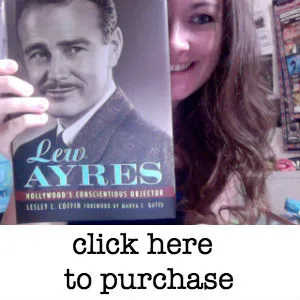

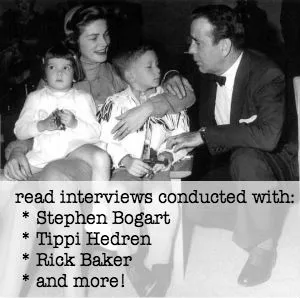
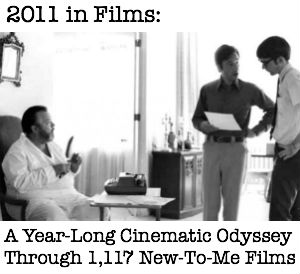
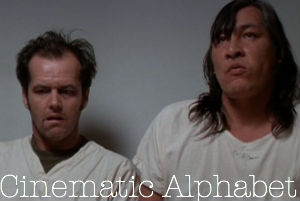

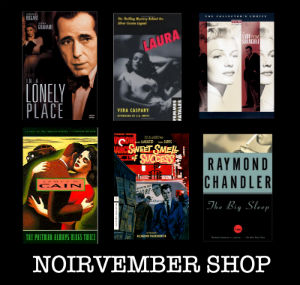








Leave a comment
Comments 0